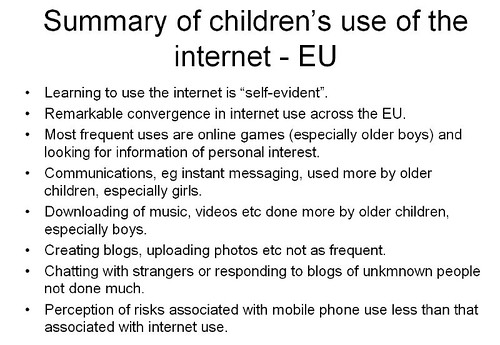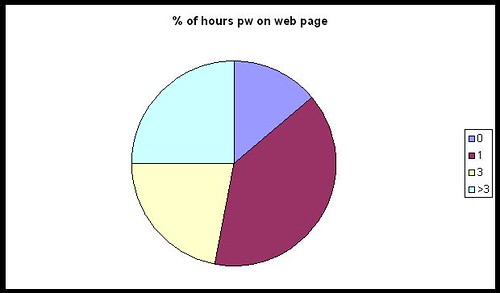What do the Cambridge Primary Review, the 14-19 Diploma and walking down Piccadilly have in common?
In the evening of 19 October 2009 I attended the launch of the Cambridge Review of the Primary Curriculum, at the Royal Society of Arts. What the report brings out is the fact that there is much that children know, understand and can do. This will not be news to anyone who believes that children are (or could and should be) active agents in their own education as opposed to empty vessels into which a teacher pours knowledge. Anyone who believes that teaching is more than merely following a script written by a third party, which is about as creative as painting-by-numbers, knows this.
Indeed, my own small-scale research (please see References), and the research which Miles Berry and I undertook (ditto), shows this to be the case. So hearing it emphasised at such a meeting and in such a robust publication was most welcome.
It was interesting to learn, for example, that when asked what makes a good teacher, the children came up with the same answers instantly as academic researchers take eons to discover! The teacher must know their stuff, make learning fun, and tell the class in advance what they will be covering.
(I intend to write a separate article about the Cambridge Review, but I'd like to go on record now as saying I think it's a seminal piece of work, and likely to prove the modern-day equivalent of the Plowden Report (and no doubt suffer the same fate). I haven't read the final bit about ICT thoroughly yet, but was impressed enough by the statement, at the launch, that ICT was seen as fundamental a type of literacy as oracy or numeracy, and not merely as an instrument for achieving something else, to say that perhaps I was wrong when I said the educational ICT community should reject the ICT aspects of the report. But, as I say, I will write more when I have read more)
The following day I attended a Westminster Forum on the subject of Diplomas and Apprenticeships, as I have already mentioned. There are two dangers in education. One is that conference organisers too often fail to include young people as an integral part of the programme. Another is that good ideas like the Functional Skills and the Personal Learning and Thinking Skills will end up as just more sets of tickboxes for teachers to complete.
I am delighted to say that my worse fears on both counts were allayed at the seminar. Not only did the organisers have the good sense to include a talk by a young person, the school had the good sense to choose an excellent spokesperson!
Victoria is undertaking the Advanced Diploma in Engineering, and was one of the most articulate speakers I've heard. In her allotted five minutes she managed to convey vividly the benefits and challenges of the Diploma, and what doing it has meant for her personally.
She also said, in response to a question of mine, that her teacher's ability to teach the course improved dramatically after s/he had attended an Inside The Workplace event as part of their professional development!
Victoria was accompanied by a friend, who sat in the front row giving her moral support, and who was also prepared to assist in answering questions. In speaking to their teacher I found out that preparing for, taking part in and attending such events was all part of the school's approach to teaching Functional Skills and the Personal Learning and Thinking Skills.
Finally, whilst walking down Piccadilly writing the draft for this article in my head, I was brought back to the here and now by a girl asking me if I knew where Regents Street was. I replied that I did, and that it would be easier for me to take her there than to try to give directions (and before you leap to any conclusions, I should mention that she was accompanied by her mother!). We got chatting, and it turns out that the reason she was in London was to attend St James's Palace, where she was presented with her Gold Duke of Edinburgh Award by Prince Philip, the Duke himself. Just listening to the catalogue of what she had done in order to achieve the award was enough to make me feel exhausted!
So what do these three episodes have in common? I think the obvious conclusion is that young people know and can do an awful lot, given the right set of circumstances. So, as far as ICT is concerned, what are the 'right circumstances'? I would suggest the following:
- Start from the premise that the young person in front of you knows a lot, but is keen to know more.
- Provide a real challenge, as far as possible, not a made up, and therefore irrelevant, one.
- If audience is involved, let it be a real and important audience. Victoria sat next to, and was spoken to by, Tim Boswell, MP. That's more than a lot of adults have done. And it's so much more meaningful than having an 'audience' of several thousand unknown people on YouTube in my opinion.
- Build the teaching and learning of Functional Skills, Personal Learning and Thinking Skills and other kinds of skill into the work itself, not as some kind of artificial add-on.
- Make learning enjoyable.
- Treat the young people as adults, as far as possible. At least, treat them with respect: the ideas and opinions and scenarios they come up with may pleasantly surprise you.
- Make sure you and your colleagues obtain relevant and enjoyable professional development.
 ITTE held its annual conference recently, and I bought a ticket and went along. As far as the ITTE conference is concerned, I was a newbie, and so I wasn’t sure what to expect. I do recall dragging my carcass to the local station in sweltering heat, mumbling to myself something along the lines of “Please let the trains be cancelled; I’d rather be in the garden.” Well, that proved too much for Transport for London to arrange, and so I made it to the conference.
ITTE held its annual conference recently, and I bought a ticket and went along. As far as the ITTE conference is concerned, I was a newbie, and so I wasn’t sure what to expect. I do recall dragging my carcass to the local station in sweltering heat, mumbling to myself something along the lines of “Please let the trains be cancelled; I’d rather be in the garden.” Well, that proved too much for Transport for London to arrange, and so I made it to the conference. ITTE held its annual conference recently, and I bought a ticket and went along. As far as the ITTE conference is concerned, I was a newbie, and so I wasn’t sure what to expect. I do recall dragging my carcass to the local station in sweltering heat, mumbling to myself something along the lines of “Please let the trains be cancelled; I’d rather be in the garden.” Well, that proved too much for Transport for London to arrange, and so I made it to the conference.
ITTE held its annual conference recently, and I bought a ticket and went along. As far as the ITTE conference is concerned, I was a newbie, and so I wasn’t sure what to expect. I do recall dragging my carcass to the local station in sweltering heat, mumbling to myself something along the lines of “Please let the trains be cancelled; I’d rather be in the garden.” Well, that proved too much for Transport for London to arrange, and so I made it to the conference.

